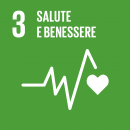Lifestyle, Nutrition, and Health during lifespan – Prof. Hellas Cena
- 09, 07, 2022
This program is aimed at students wishing to acquire knowledge in nutrition, lifestyle and wellbeing with a key emphasis on sustainable diet, tackling the SDG3.
Title: Lifestyle, Nutrition and Health during lifespan
Provider: University of Pavia, Prof. Hellas Cena, Prof. Rachele De Giuseppe
Date: 28th March 2025 – 30th May 2025 (Second semester) Academic Year 2024-2025.
PROGRAM
1. Lifestyle, nutrition, and health to prevent Non- Communicable Diseases ( PE10 SPOKE 5 & SPOKE6). Prof Ivana Kolcic. 28 Mar 2025 11:00 am – 12:00 pm
2. Nutrition and Health – the triple burden of malnutrition (PE10 SPOKE 5 & SPOKE6). Dr Rachele De Giuseppe. 04 April 2025 11:00 am -12:00 pm
3. The first 1000 days: a window of opportunity (PE10 – SPOKE5). Dr Francesca Sottotetti. 11 Apr 2025 11:00 am – 12:00 pm
4. Sustainable healthy dietary patterns (PE10 SPOKE 5-7) Dr Leila Itani. 02 May 2025 11:00 am -12:00 pm
5. Policy, behaviour and education to tackle childhood obesity (PE10- SPOKE 7).Dr Maria Vittoria Conti & Dr Sara Basilico. 09 May 2025 11:00 am -12:00 pm
6. Malnutrition in older adults: healthy and sustainable ageing (PE 10-SPOKE 6) Dr Sara Santero. 16 May 2025 11:00 am -12:00 pm
7. Nutrition to Prevent Cancer (SPOKE 6) Dr Salvatore Artale. 23 May 2025 11:00 am – 12:00 pm
8. Obesity and Excessive weight gain: Symptoms, Signs, Causes & Treatment (SPOKE 6). Prof Hellas Cena. 30 May 2025 11:00 am – 12:00 pm
Description of the course:
Investments to improve nutrition and health, increasing nutritional knowledge and raising awareness of the benefits of a healthy lifestyle, is crucial. Today, lifestyl
habits, including the interactions between nutrition and health, as parts of the ageing process, are
extensively studied from a scientific and clinical perspective; eating habits and eating behaviours
are recognised as important modifiable factors that can help achieve and maintain health throughout life. Epidemiological evidence suggests that optimal nutrition plays a beneficial role in
healthy ageing and age-related disorders, also called non-communicable diseases, including
cardiometabolic, neurodegenerative and cancer diseases.
Although “lifestyle” can be defined as a “way of life”, this is an umbrella term that encompasses many different concepts, such as how an individual life works, eats, moves, has fun, sleeps, and relaxes, shaped not only by personal habits but also by broader cultural, social, political, and economic factors. Furthermore, the media continues to convey minor and uncertain issues in lifestyle science, creating confusion and diverting public attention from key challenges, major health problems and the increased disease burden.
Unfortunately, even college health sciences curricula are lagging in teaching students about nutrition, physical activity, and stress management. For example, human nutrition training
should be part of several science/health degree programs, with specific training programs based
on different professional needs. In addition, students should be educated on food systems and the
sustainability of different food patterns, emphasising the quality and sustainability of food, which
are essential for both the health of the planet and human health.
Therefore, for all these reasons, this micro-credential program aims at students wishing to acquire
nutrition, lifestyle, and well-being knowledge with a key emphasis on sustainable diet. For this
purpose, the program has been divided into 8 modules.
Learning outcomes:
- Basic knowledge of the link between lifestyle and nutrition with health and well-being;
- Inter generational link of eating habits and behaviors and health and disease;
- Sustainable healthy dietary patterns for prevention of Non Communicable Diseases
How: in streaming on line.
Zoom link here.
ID: 844 3437 5960
Passcode: 331534
Credits: 1 (8 hours)
Time-period: 28th March 2025 – 30th May 2025 (Second semester) Academic Year 2024-2025.
Any prerequisite: This program is designed for students with basics of Physiology and biochemistry (high school level is fine as far as these subjects were taught).
Learning resources: slides, scientific literature and topic-specific videos; classes’ recording will be
shared on KIRO platform (credentials for the access needed).
Type of assessment: Multiple-choice questionnaire (Approved/not approved), released on
KIRO testing platform. Need the credentials for the access.
IMPORTANT – To access the exam you must register in advance on the ESSE3 portal.
Dates of the assessment:
27 June 2025, 09:30 -10:30 a.m.
04 July 2025, 09:30 -10:30 a.m.
18 July 2025, 09:30 -10:30 a.m.
12 September 2025, 09:30 -10:30 a.m.
Quality assurance: University of Pavia
The course is designed considering the learning outcomes defined by UNESCO on the SDG3 Good Health and Well-being | Ensure healthy lives and promote well-being for all at all ages and it is provided with the free patronage of the foundation Fondazione ONFOODS.

